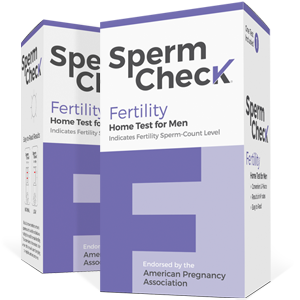
When you and your partner decide to start or expand your family, several questions can arise. Fertility is often the main topic for couples, as both male and female reproductive systems need to function correctly in order to conceive. For those who are fertile and actively trying to get pregnant, there are many other aspects to consider. Here, you can gain a comprehensive understanding of when and how often you should be having sex, if specific positions can be beneficial, and more.
1. Time Things Out
As a couple, it can be beneficial to understand the female menstrual cycle and how to track ovulation best. Aim to have intercourse during the fertile window, which is typically a few days before and during ovulation.
When ovulating, at least one of the two ovaries will release a mature egg. A surge of LH or luteinizing hormone triggers the release of the egg. The ovulation phase of the menstrual cycle is when the likelihood of becoming pregnant is highest. During a standard 28-day menstrual cycle, ovulation typically begins on or around day 14 (14 days after a woman’s period begins). The exact length of time a woman will ovulate varies from person to person.
Signs of Ovulation
The American Pregnancy Association notes that signs of ovulation could include changes in the following:
- Cervical Fluid: During ovulation, a woman’s vaginal discharge changes. Her cervical fluid will turn clear and resemble egg whites during the most fertile time. A woman is most likely to ovulate on the day that her cervical fluid is most apparent.
- Basal Body Temperature: When carefully tracking basal body temperature, some women notice that their basal (resting) body temperature will slightly decline as they get closer to ovulation. This decline is followed by ovulation and soon an increase in temperature again. To measure correctly, temperature must be taken immediately after waking, before getting out of bed. Any movement can increase temperature and will not accurately reflect basal temperature.
- Cervical Position or Firmness: Occasionally, women may notice the physical changes their cervix goes through as they ovulate. During ovulation, the cervix becomes more soft, high, wet, and open. These changes can be challenging to detect, but not impossible.
2. Increase (or Decrease) Frequency of Intercourse
American College of Obstetricians and Gynecologists experts note that having sex daily, particularly during ovulation, doesn’t necessarily add an additional boost to your chances of conception. Try not to overdo it.
A more effective strategy would be to aim for every other night, as sperm can survive inside the body for up to 5 days. Maintaining a consistent pattern of sexual activity while still keeping the moment fun and genuine is often the best option for many couples.
3. Leg Lifting Isn’t Exactly Necessary
Perhaps you have heard that a couple can increase their chances of becoming pregnant if the woman lifts her legs or hips in the air after sex. The thought process here is that gravity will play a helpful hand and aid sperm that are traveling to fertilize an egg. While the idea makes sense on paper, there is no scientific basis for this practice. Sperm travel through the vaginal canal by swimming – assisted by the cervical mucus – and gravity does not play a significant role.
However, laying down after sex for 10-15 minutes may have some benefit, although studies are mixed. While several smaller studies have shown a benefit, one 2016 study of nearly 500 women showed that women who immediately stood up after IUI were actually more likely to get pregnant, although the difference was not statistically significant.
4. Position Matters Less Than You May Think
Contrary to a vast amount of online chatter, there’s no true “magic” position for conception. A 2019 study published in the National Library of Medicine states:
“Many conflicting claims were made [online] about the intercourse position in which conception was best achieved (1. Any position is fine, 2. Do not use the same position, 3. Best position = deep penetration: closer to the cervix), none of which are supported by any evidence in the academic literature.”
Instead of fixating on specific positions, experiment with those both partners find comfortable and exciting. Keeping the experience enjoyable and maintaining intimacy is one of the best ways to ensure that trying to conceive does not feel like a chore.
5. Stay Informed Together and Seek Guidance When Necessary
Ensure you and your partner are informed, involved, and optimistic throughout the process. If possible, attend doctors appointments together and discuss any concerns or questions openly.
If you’ve been actively trying to conceive for a year without success, it’s advisable to consult a fertility specialist for further evaluation and guidance.
Remember that various factors beyond sperm count can influence fertility, and it’s essential for both partners to work together, stay patient, and maintain a healthy lifestyle to best optimize their chances of conceiving.
Struggling with infertility and need answers?
An at-home sperm test from SpermCheck can help you know your sperm levels and discover the best next step in your fertility journey. Order your SpermCheck Fertility test today.




